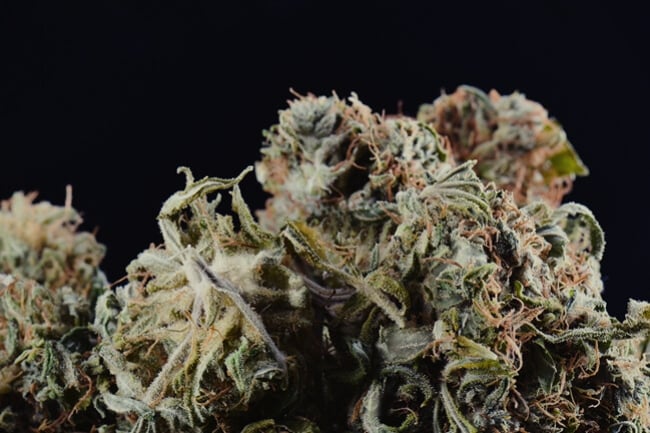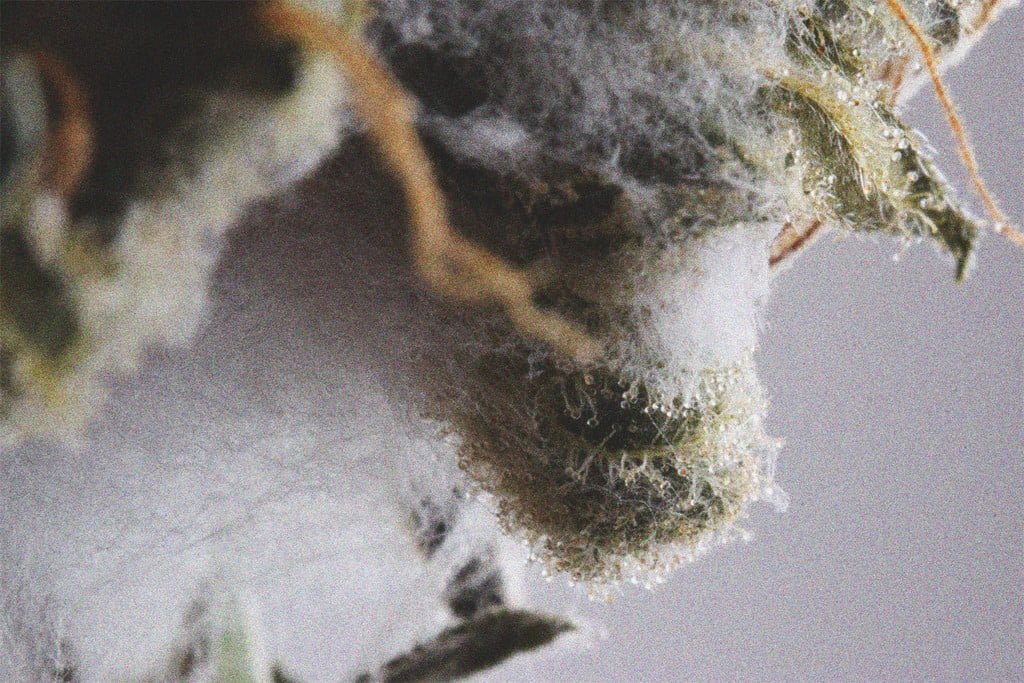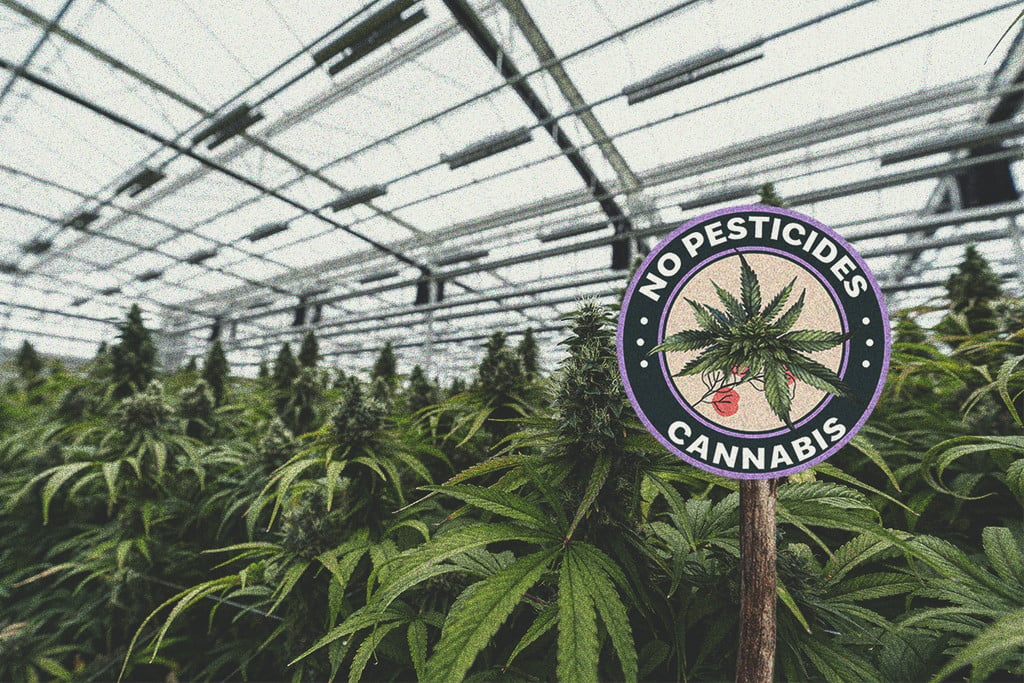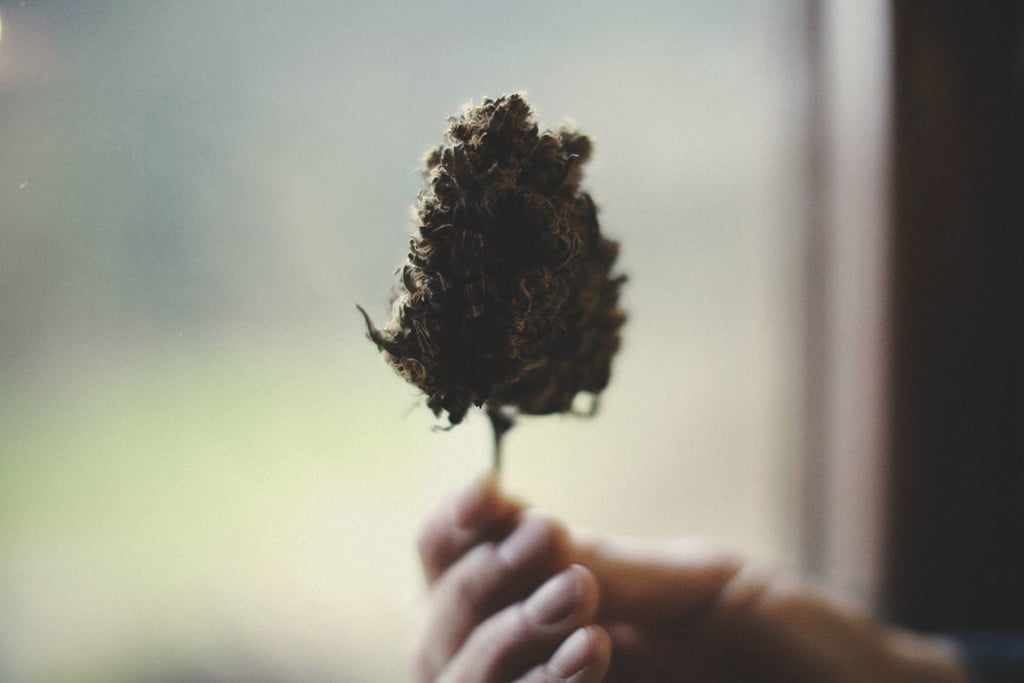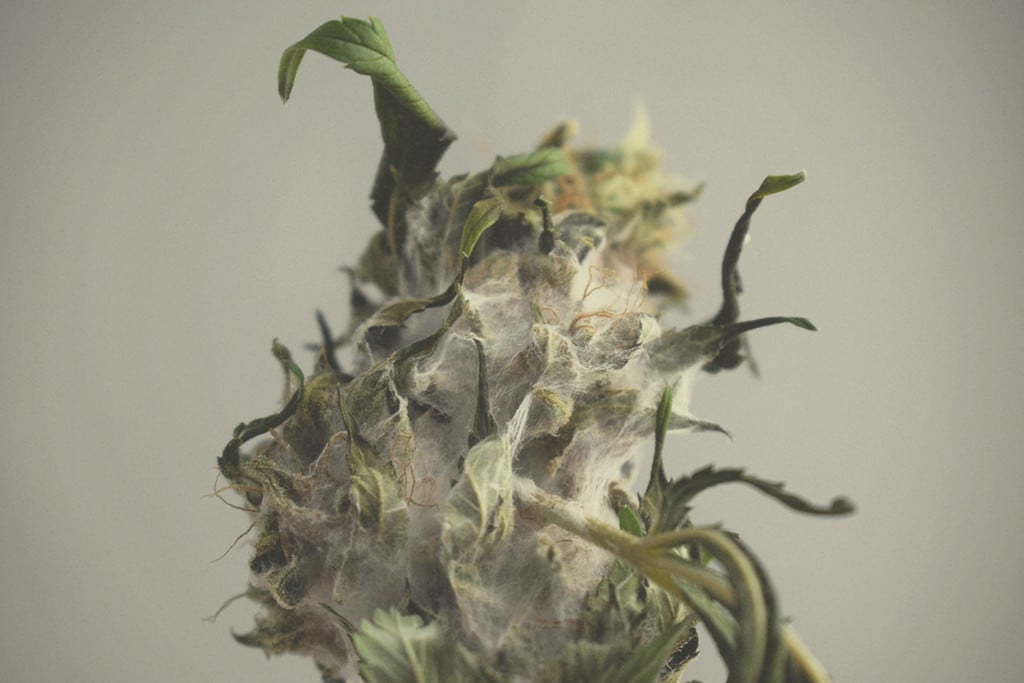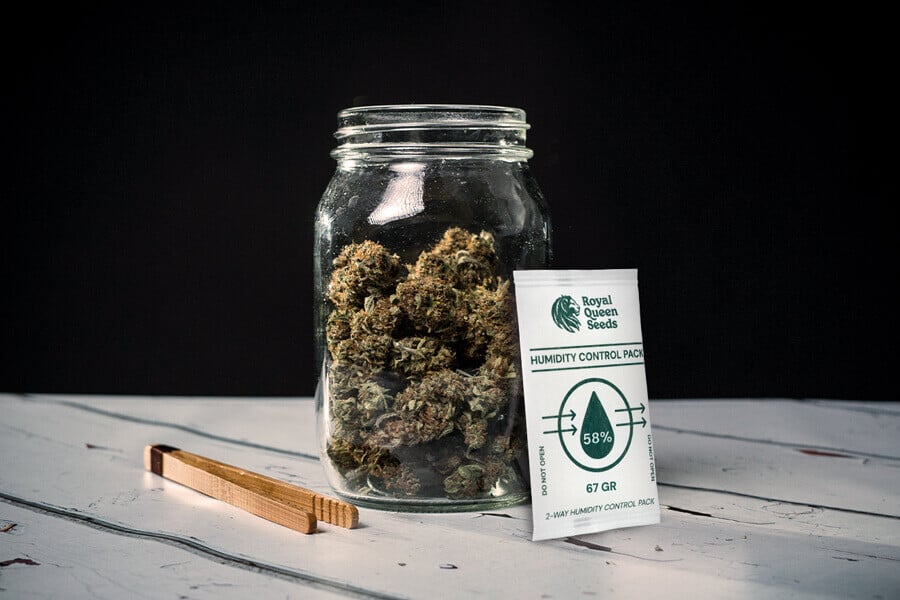 Weed Grow Guide by Royal Queen Seeds
Weed Grow Guide by Royal Queen Seeds
- Growing weed step by step
- Marijuana growing basics
- Choosing your seeds
- How to germinate seeds
- The marijuana vegetative stage
- The marijuana flowering stage
- Harvesting marijuana
- Trimming, drying, and curing
- Choosing pots and soil
-
Growing indoors
- A Complete Overview Of Growing Cannabis Indoors
- Cannabis Cultivation Tips: How To Set Up Indoor Grow Lights
- How Many Cannabis Plants Can You Grow Per Square Metre?
- Indoor Cannabis Growing: Relative Humidity and Temperatures
- Hydroponics Cannabis Growing Guide (with diagrams)
- Cannabis Micro Growing: Growing Great Weed in Tiny Spaces
- Growing outdoors
- How to grow autoflowering marijuana
- Marijuana nutrients and pH
- Marijuana troubleshooting: Nutrients
-
Marijuana troubleshooting: Growing
- Cannabis Seed Germination — Troubleshooting Guide
- How to Deal With Pythium (Root Rot) in Cannabis Plants
- Slow Cannabis Plant Growth And What You Can Do About It
- How to Deal With Leggy Cannabis Seedlings
- Watering Your Cannabis: How to Fix Overwatering and Underwatering
- Understanding Male, Female, And Hermaphrodite Cannabis
- Identifying and Treating Common Cannabis Ailments
- How To Revive a Sick Cannabis Plant
- How to Avoid Moldy Marijuana During Drying and Curing
- How to Prevent and Treat Dry and Crispy Cannabis Leaves
- What Cannabis Leaves Can Tell You
- Causes and Solutions for Yellow Cannabis Leaves
-
Marijuana Strains Grow Report
- HulkBerry Automatic Grow Report
- Blue Cheese Auto Grow Report
- Purple Punch Automatic Strain Grow Report
- Triple G Automatic Grow Report
- Do-Si-Dos Automatic Grow Report
- Green Gelato Automatic Grow Report
- Haze Berry Automatic Grow Report
- Purple Queen Automatic Grow Report
- Cookies Gelato Automatic Grow Report
- Sherbet Queen Automatic Grow Report
- Sweet Skunk Automatic Grow Report
- Medusa F1 Grow Report
- Marijuana plant training
-
Marijuana growing tips
- The Cannabis Plant Anatomy
- How to preserve seeds - RQS USA
- How Much Sunlight Do Outdoor Cannabis Plants Need To Grow?
- How to Control and Prevent Stretching in Cannabis Plants
- My Cannabis Plants Are Growing Too Tall: What Should I Do?
- Should You Worry About Purple Or Red Cannabis Stems?
- What To Do When Your Indoor Cannabis Won’t Flower
- How To Protect Your Cannabis Plants From Heat Stress
- How To Tell If Your Female Cannabis Plant Has Been Pollinated
- Growing Medical Marijuana
- Bud Washing: How to Clean Your Weed
- Understanding Cannabis Yield per Plant
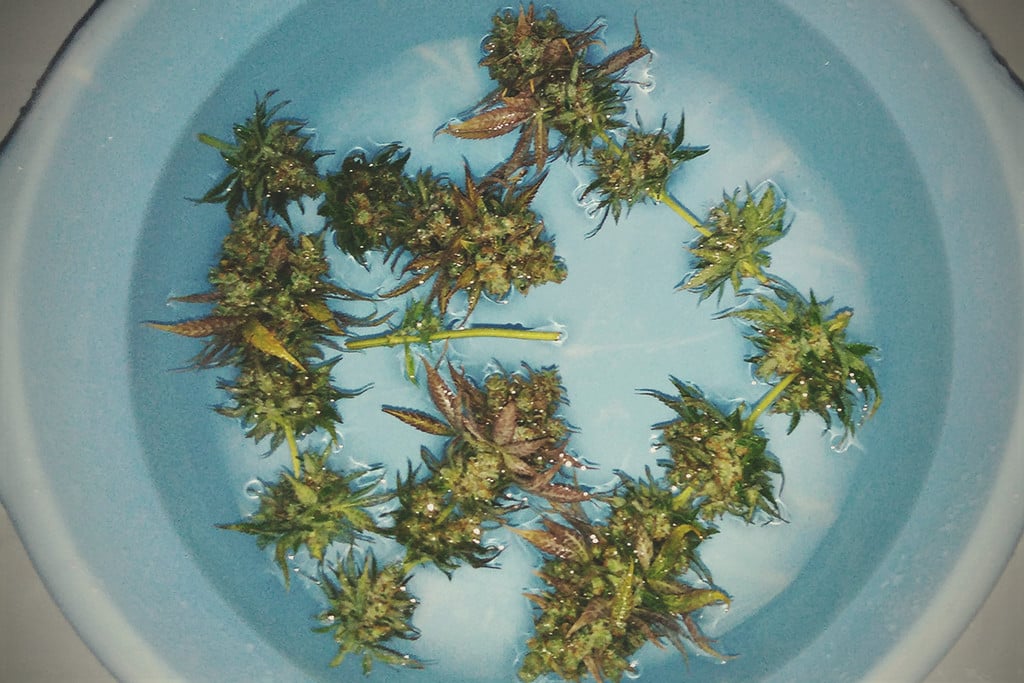
Bud Washing: How to Clean Your Weed
Contents:
Chances are, you wash anything green before consuming it. You rinse off store-bought veggies, and certainly douse your garden-grown produce to purge any soil particles and lingering creepy crawlies. But why don’t we afford this same level of treatment to our cannabis colas?
It might seem utterly bizarre to dunk your buds in buckets of water before drying, but it makes sense the more you think about it. All manner of debris can build up on buds during the flowering phase, from dust to minute insect eggs. If the thought of blazing or cooking these contaminants makes you shudder, then you need to read on.
What Is Bud Washing?
Bud washing is exactly as it sounds; the practice involves immersing your cannabis flowers in water following harvest to clean them. Never heard of this before? No worries, few people have. Despite the low level of awareness, bud washing seems poised to take off, especially among commercial operations. Why? Because sticky cannabis flowers are magnets for dust, dirt, microbes, and a host of other living and nonliving things that consumers don’t want to smoke, vape, or eat.
Buds grown both indoors and outdoors are exposed to contaminants. Whereas colas are more likely to gather dust indoors, those cultivated outside are havens for mites and insect eggs. By simply dunking your buds before processing, you can rest assured that you’re only using clean weed.
Is Bud Washing Counterproductive?
But aren’t cannabis flowers coated with precious cannabinoids and terpenes? Won’t plunging them into water dislodge their trichomes and cause them to lose potency and flavor? While these are understandable concerns, washing your weed won’t impact its flavor and effects. Cannabinoids such as THC and CBD are fat-soluble and hydrophobic, meaning you won’t lose them when you bathe your bud in water.
Plus, those fruity and floral terpenes are locked up in a sticky resin. As long as you carry out the process mindfully and gently, you’ll preserve these key molecules.
What about drying? Sure, it takes longer to dry off buds after submerging them. But a little longer on the drying rack far outweighs processing and using weed coated in dust and other contaminants.
The Pros and Cons of Bud Washing
Bud washing sounds great so far, but are there any downsides to the practice? Discover the advantages and disadvantages of washing weed below.
-
Pros
| Removes mites and eggs | Cannabis flowers feature many nooks and crannies, and their coating of resin means things readily stick to them. Bud washing helps to remove living organisms from the surface, including mites and insects eggs. |
| Purges dust and soil | Although not alive, dust and soil still aren’t pleasant to smoke or eat. Washing your weed will remove small particles that aren’t visible to the naked eye. |
| Improves taste | Do you think your weed tastes good? Wait until you remove all of those invisible contaminants. Weed washing helps the true terpene profile of a strain shine through without any distortion in flavor. |
| Removes pesticides and chemical residues | We always recommend growing weed organically at home. However, when buying buds, you never know what horticultural practices were used to grow them. Bud washing will help to remove any nasty chemical residues. |
| Removes mites and eggs |
| Cannabis flowers feature many nooks and crannies, and their coating of resin means things readily stick to them. Bud washing helps to remove living organisms from the surface, including mites and insects eggs. |
| Purges dust and soil |
| Although not alive, dust and soil still aren’t pleasant to smoke or eat. Washing your weed will remove small particles that aren’t visible to the naked eye. |
| Improves taste |
| Do you think your weed tastes good? Wait until you remove all of those invisible contaminants. Weed washing helps the true terpene profile of a strain shine through without any distortion in flavor. |
| Removes pesticides and chemical residues |
| We always recommend growing weed organically at home. However, when buying buds, you never know what horticultural practices were used to grow them. Bud washing will help to remove any nasty chemical residues. |
-
Cons
| Prolongs the drying period | Submerging your buds means they’ll take a while longer to dry. You’ll need to exercise patience and leave them long enough for all of the moisture to leave. |
| Cannot remove fungal infections | Although effective at removing debris, bud washing won’t remove fungal pathogens that physically enter plant cells. Never smoke weed that has signs of infections such as powdery mildew. |
| Promotes excess moisture | Bathing your cannabis plants coats them with moisture and predisposes them to mold if not dried correctly. |
| Prolongs the drying period |
| Submerging your buds means they’ll take a while longer to dry. You’ll need to exercise patience and leave them long enough for all of the moisture to leave. |
| Cannot remove fungal infections |
| Although effective at removing debris, bud washing won’t remove fungal pathogens that physically enter plant cells. Never smoke weed that has signs of infections such as powdery mildew. |
| Promotes excess moisture |
| Bathing your cannabis plants coats them with moisture and predisposes them to mold if not dried correctly. |
Bud Washing: What Solutions to Use?
Whereas some growers use nothing but water to wash their weed, others use specific formulas to help ensure their buds undergo a thorough clean. Check out a few of the most popular options below.
-
Lemon and Baking Soda
Lemon and baking soda may seem like an odd combination, but people use the two for a variety of purposes. The acidity of lemons and the alkalinity of baking soda make the duo a useful natural cleaning product to scrub down surfaces and deodorise spills. Adding this combination to your bud washing process will help to further cleanse your flowers without the need for synthetic chemicals.
-
Diluted Hydrogen Peroxide
Hydrogen peroxide commonly shows up in household cleaning products, but many growers use it post-harvest to clean their buds. The substance has antimicrobial properties and, in small concentrations, can help to kill off lingering microbes such as bacteria.
-
Reverse Osmosis Water
It makes sense to use the cleanest water when washing your buds. Dunking your flowers in tap water will help to dislodge debris, but it also exposes them to chemicals such as chlorine and fluoride. Reverse osmosis filtration passes water through a semipermeable membrane, removing unwanted molecules in the process. We strongly recommend using reverse osmosis during bud washing when possible.
Want flawless post-harvest results? Download our Pro Growing Guide for advanced bud-washing protocols, optimized drying and curing methods, precise humidity targets, and storage strategies that preserve potency, aroma, and flavor.
Free Advanced
Growing Guide!
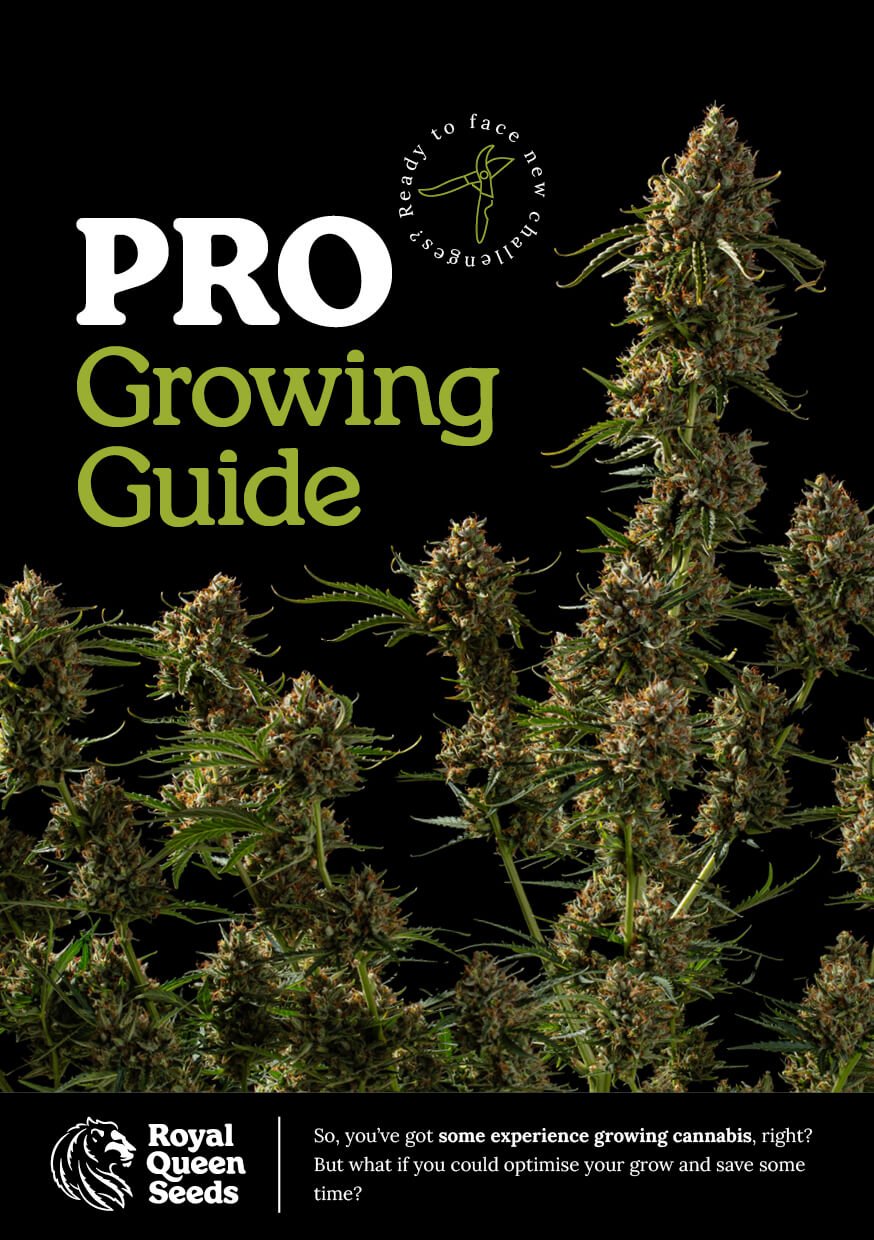
How to Wash Your Buds
So, you’re aware of all of the benefits of bud washing, along with some of the downsides. You also know some of the common formulations used in the process. Now it’s time to learn the step-by-step process. Keep reading for a guide on how to cleanse your buds from debris to experience their true flavors.
Equipment
- 3x clean 5-gallon (19-litre) buckets
- 0.4 gallons (45 litres) of room temperature water (reverse osmosis if possible)
- ¼ cup lemon juice
- ¼ cup baking soda
Step 1: Set Up Your Production Line
Set up your buckets in a production line style. Bucket 1 will contain the cleaning solution, bucket 2 will provide the first rinsing station, and bucket 3 will serve as the second rinsing station.
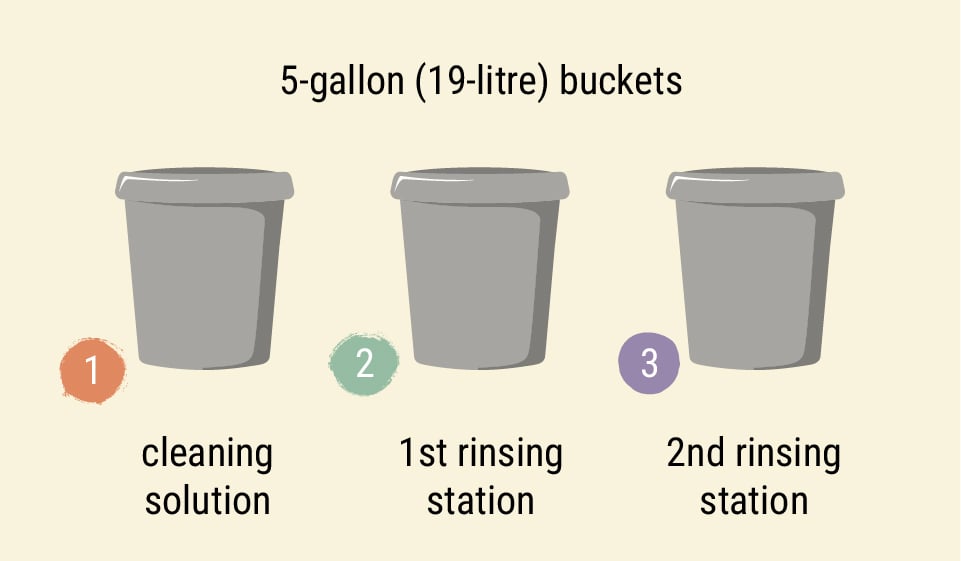
Step 2: Fill Your Buckets
Fill each 5-gallon bucket with 0.1 gallons (15 litres) of reverse osmosis water. This quantity is deep enough to dip and wash whole branches at a time, without the risk of splashing water all over the place. Once full, add the ¼ cup of lemon juice and ¼ cup of baking soda to bucket 1, and stir thoroughly.
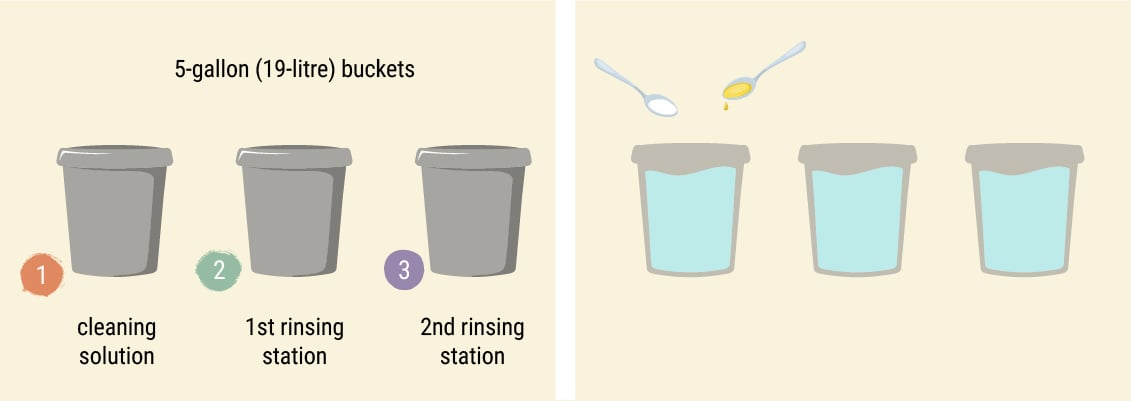
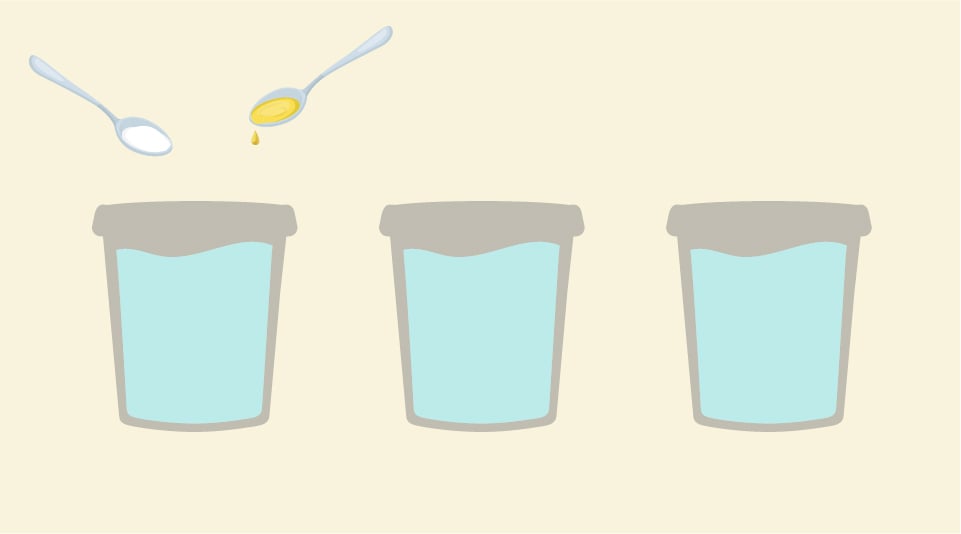
Step 3: Initial Dip
Grab a branch bearing buds and gently dip it into the solution within bucket 1. Gently stir and swirl the branch around the bucket for around 30 seconds.
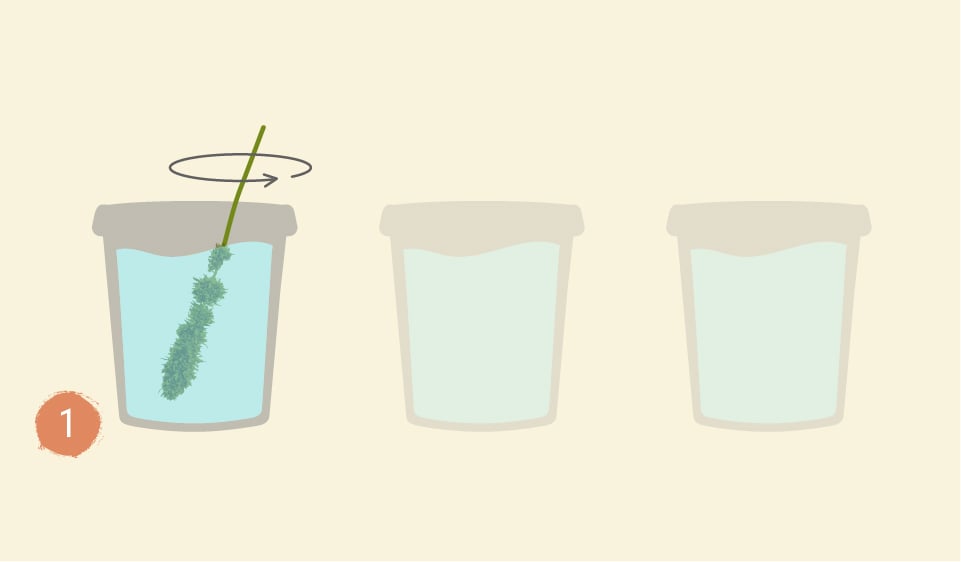
Step 4: First Rinse
Next, move the branch down the production line to bucket two. Submerge it into the water and move it around in the same fashion for another 30 seconds. This bucket will help to rinse off any further debris, as well as the initial solution.
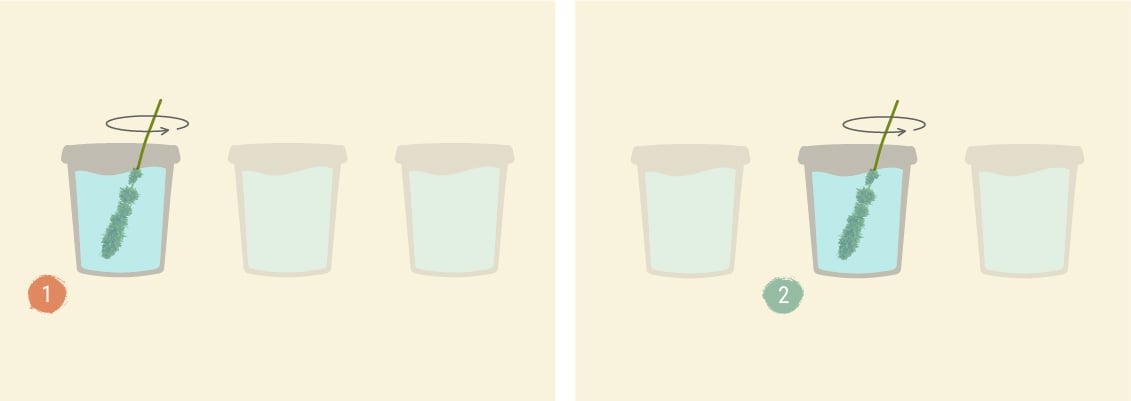
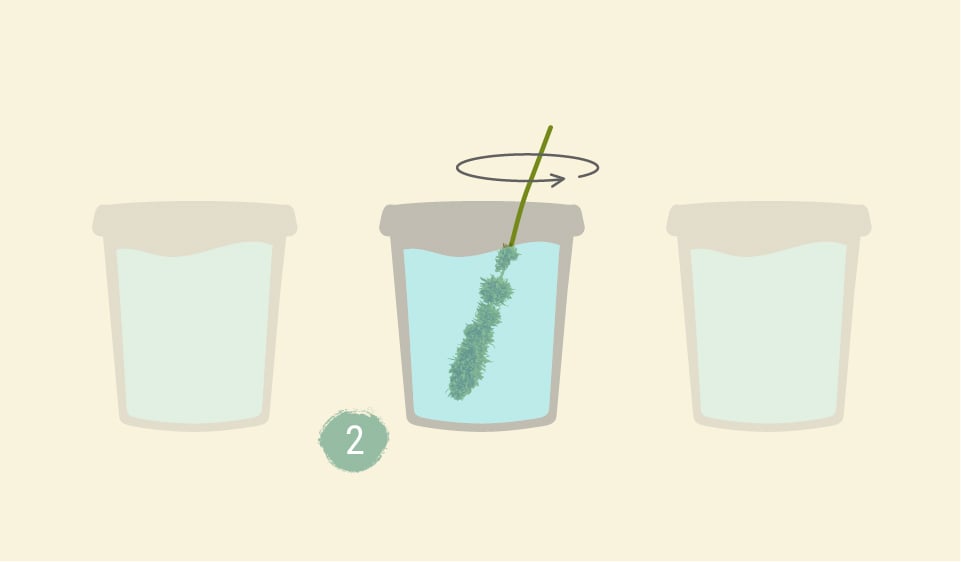
Step 5: Second Rinse
Because bucket 2 will gather dirt particles and the solution, bucket 3 serves as a final rinse to remove any residue and contaminants. Stir gently for a final 30 seconds. Then, remove each bud from the branch and place them in a herb dryer, or hang entire branches from a drying line.
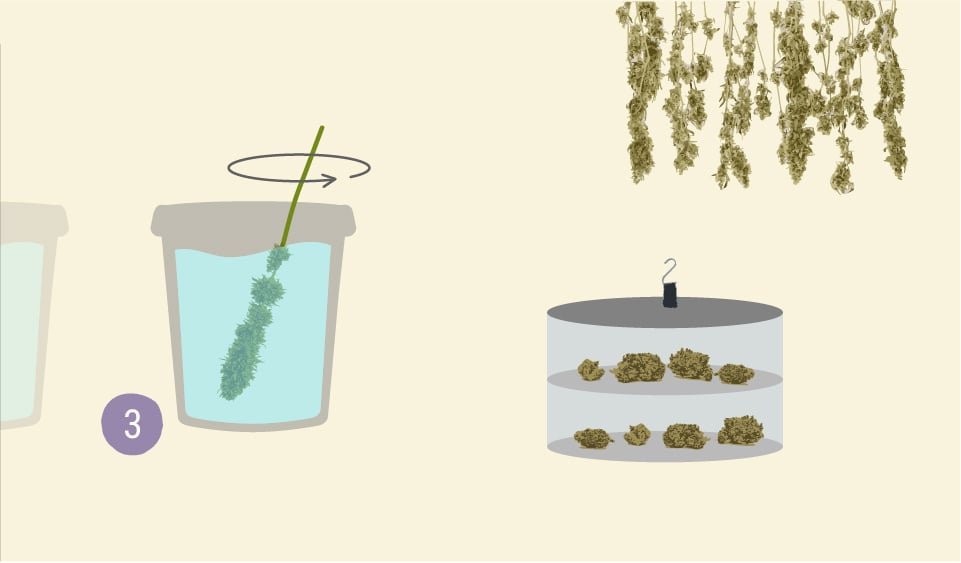
Step 6: Start Drying
Proceed by drying your cannabis as normal. Place your washed material in a dark room with good air circulation and a relative humidity of 45–55%. After around 12 days, start the curing process to improve the flavors of your buds even further.
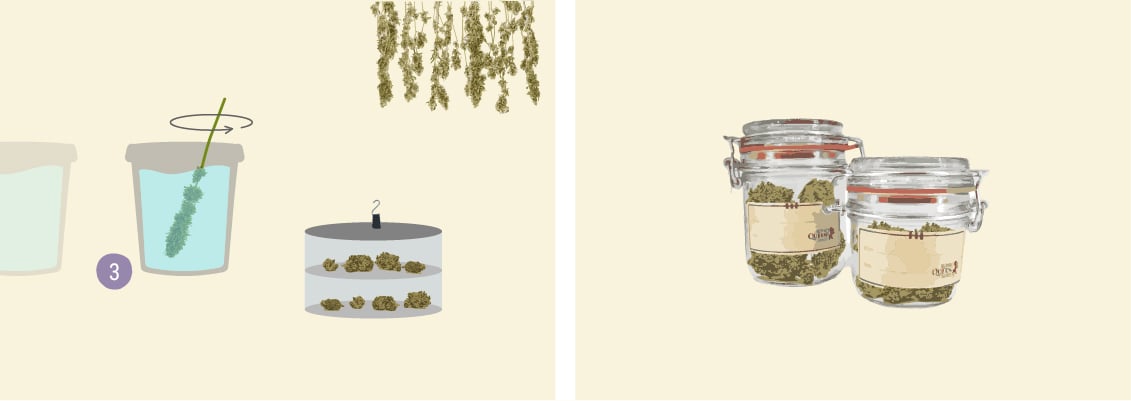
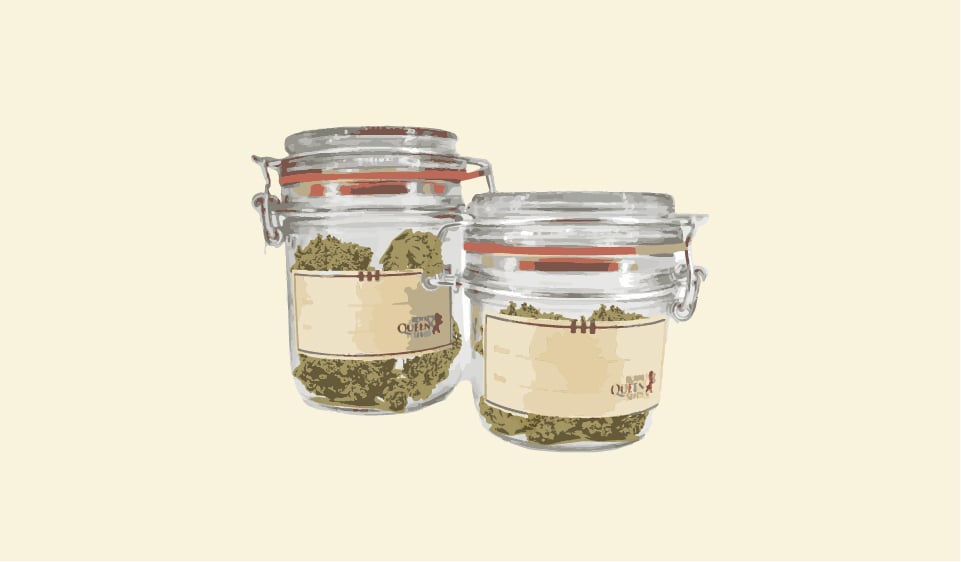
Bud Washing vs Water Curing
How does bud washing compare to water curing? Well, both involve water, but they fulfill different functions. Whereas bud washing specifically cleans cannabis flowers, watering curing only seeks to improve their flavor. Water curing helps to speed up the curing process by removing water-soluble irritants that affect the overall flavor. But you can certainly use both of these methods together; bud washing beforehand will prevent your flowers from bathing in their own grime during the water curing process.
Bud Washing: An Unusual Process That’s Growing in Popularity
At a glance, bud washing seems obscure and even detrimental. However, it doesn’t take long after learning about the concept for it to make complete sense. We wash fruits and veg before devouring them, so why wouldn’t we rinse off buds that we ingest or smoke? Sure, weed washing means extending the drying period slightly, but it pays off in clean flowers and improved tastes. Don’t believe us? Just take a look at the bottom of the buckets after completing the process.
 Grow Guide Topic Finder
Grow Guide Topic Finder
- Growing weed step by step
- Marijuana growing basics
- Choosing your seeds
- How to germinate seeds
- The marijuana vegetative stage
- The marijuana flowering stage
- Harvesting marijuana
- Trimming, drying, and curing
- Choosing pots and soil
-
Growing indoors
- A Complete Overview Of Growing Cannabis Indoors
- Cannabis Cultivation Tips: How To Set Up Indoor Grow Lights
- How Many Cannabis Plants Can You Grow Per Square Metre?
- Indoor Cannabis Growing: Relative Humidity and Temperatures
- Hydroponics Cannabis Growing Guide (with diagrams)
- Cannabis Micro Growing: Growing Great Weed in Tiny Spaces
- Growing outdoors
- How to grow autoflowering marijuana
- Marijuana nutrients and pH
- Marijuana troubleshooting: Nutrients
-
Marijuana troubleshooting: Growing
- Cannabis Seed Germination — Troubleshooting Guide
- How to Deal With Pythium (Root Rot) in Cannabis Plants
- Slow Cannabis Plant Growth And What You Can Do About It
- How to Deal With Leggy Cannabis Seedlings
- Watering Your Cannabis: How to Fix Overwatering and Underwatering
- Understanding Male, Female, And Hermaphrodite Cannabis
- Identifying and Treating Common Cannabis Ailments
- How To Revive a Sick Cannabis Plant
- How to Avoid Moldy Marijuana During Drying and Curing
- How to Prevent and Treat Dry and Crispy Cannabis Leaves
- What Cannabis Leaves Can Tell You
- Causes and Solutions for Yellow Cannabis Leaves
-
Marijuana Strains Grow Report
- HulkBerry Automatic Grow Report
- Blue Cheese Auto Grow Report
- Purple Punch Automatic Strain Grow Report
- Triple G Automatic Grow Report
- Do-Si-Dos Automatic Grow Report
- Green Gelato Automatic Grow Report
- Haze Berry Automatic Grow Report
- Purple Queen Automatic Grow Report
- Cookies Gelato Automatic Grow Report
- Sherbet Queen Automatic Grow Report
- Sweet Skunk Automatic Grow Report
- Medusa F1 Grow Report
- Marijuana plant training
-
Marijuana growing tips
- The Cannabis Plant Anatomy
- How to preserve seeds - RQS USA
- How Much Sunlight Do Outdoor Cannabis Plants Need To Grow?
- How to Control and Prevent Stretching in Cannabis Plants
- My Cannabis Plants Are Growing Too Tall: What Should I Do?
- Should You Worry About Purple Or Red Cannabis Stems?
- What To Do When Your Indoor Cannabis Won’t Flower
- How To Protect Your Cannabis Plants From Heat Stress
- How To Tell If Your Female Cannabis Plant Has Been Pollinated
- Growing Medical Marijuana
- Bud Washing: How to Clean Your Weed
- Understanding Cannabis Yield per Plant


























